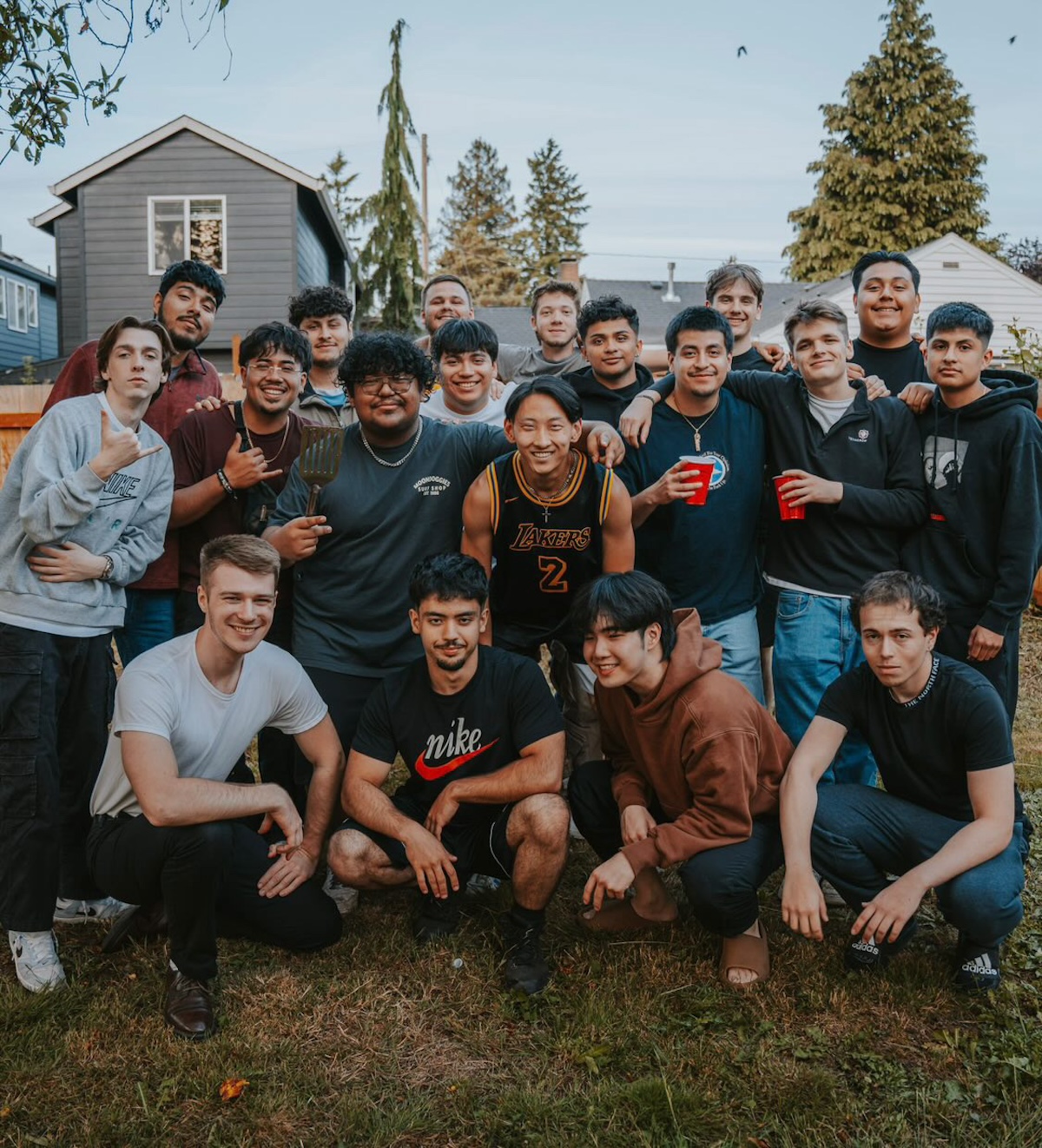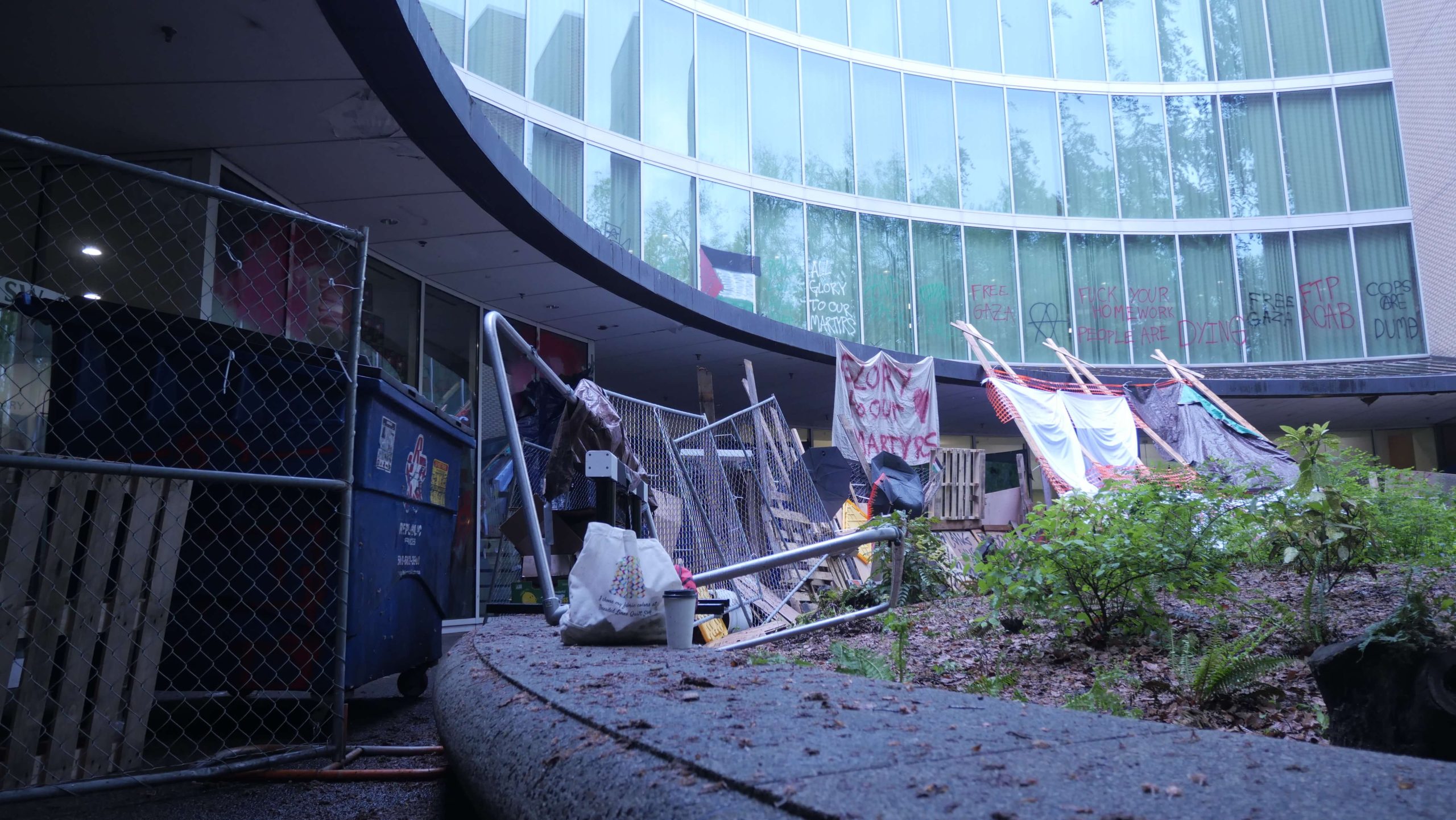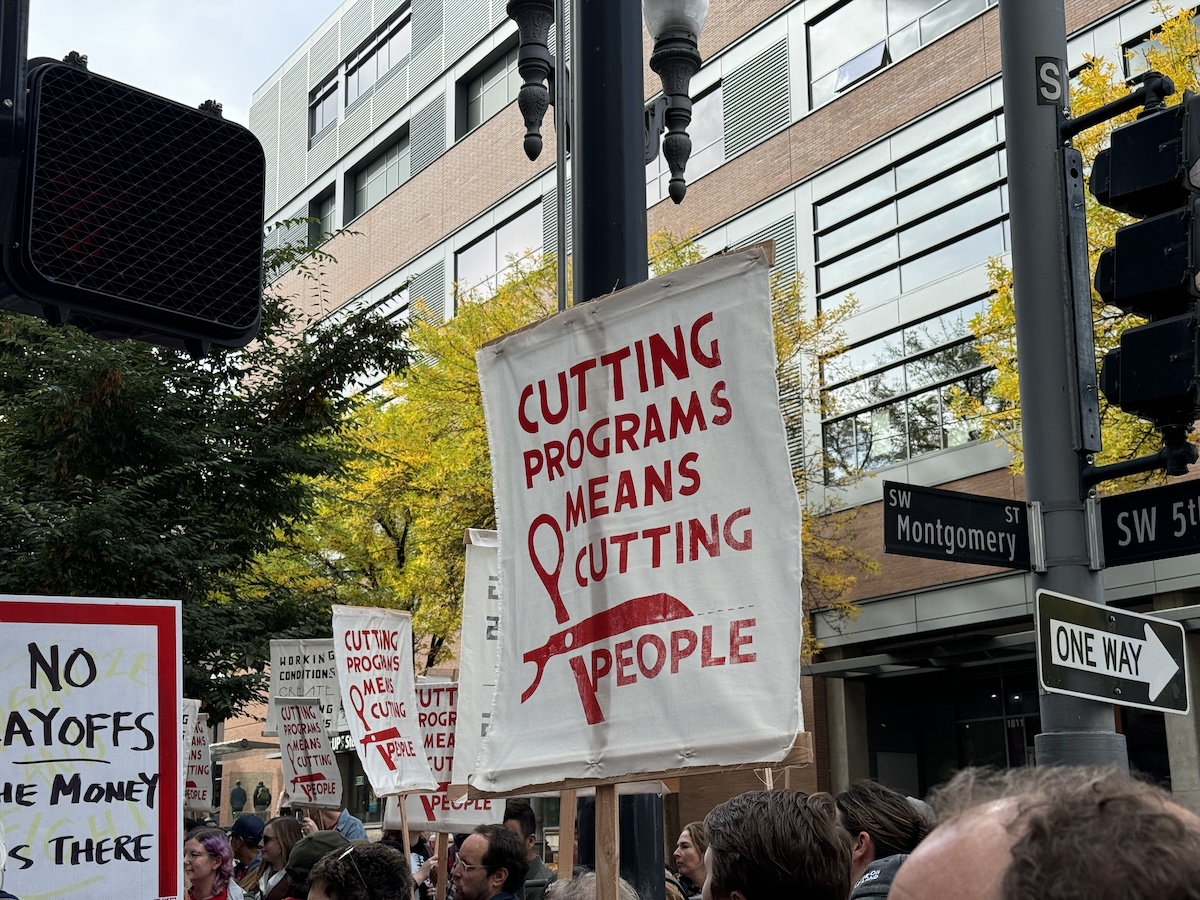Portland State University (PSU) is known for its diverse student population, commuter campus character and accessible education. PSU is seen as a distinct university within the larger landscape of higher education in Oregon—particularly due to its location in the heart of downtown. Yet one surprising overlap it has with the other large state universities in Oregon is that a Greek life community can be found here on the Park Blocks.
While not having the same footprint on campus as those at University of Oregon or Oregon State University, PSU has a handful of fraternities and sororities on campus that provide a social outlet for students from diverse backgrounds and life experiences. There are currently three PSU and Student Activity Leadership Programs (SALP) recognized Greek life organizations: Alpha Chi Omega, Kappa Delta Chi and Omega Delta Phi. Being situated in downtown Portland on a commuter campus presents unique challenges and opportunities to Greek organizations. PSU Vanguard spoke with the Theta Epsilon chapter of the fraternity Kappa Sigma, which is not formally recognized by PSU and SALP, along with the Delta Omicron chapter of the sorority Alpha Chi Omega.
Jo Do is the president of PSU’s Alpha Chi Omega chapter which debuted at PSU in 1961. She leads 22 sorority members—a massive jump from the total of six members just a few years ago.
“Because we’re a lot smaller it’s less intimidating and I feel like it’s easier to find community in that sense just because you know everybody,” Do said. “Whereas schools where Greek life is bigger or more popular you don’t know exactly who is living in your house in that instance … I know every person in this group in some capacity and it makes for more intimate relationships.”
This intimate community helped Do break out of her shell and realize her potential as a leader. She did not initially set out to be a sorority member and came into contact with Alpha Chi Omega by going to an on campus event with a friend. The stereotypes of a sorority girl have not come to fruition in Do’s experience.
“I would say [it’s] not what you would expect… it’s pretty chill, easygoing and definitely a place where people can just be themselves and [celebrate] everyone’s uniqueness,” Do said. “In my head, the idea of a sorority girl was not what I was seeing… These girls looked like myself and the people that I grew up with and I was friends with.”
Each organization has their own philanthropic emphasis that they center events around. For Alpha Chi Omega they focus on domestic violence awareness through fundraising money for Rose Haven (a day shelter and community center) or events that teach people about healthy relationships, according to Do.
The fraternity chapter of Kappa Sigma has also had a presence on the Park Blocks since the 60s, coming to PSU in 1964 according to Uri Avila, the Vice President of the chapter.
“I didn’t even think about going to college at all, that was never my priority,” Avila said. “Until my day one friends were all going and I [decided] I’ll give it a try. I decided to move on campus [and] one of my roommates told me ‘hey do you want to go to an event? Want to check out these fraternities?’… I really actually mess with these guys… and they invited me to join the fraternity.”
The fraternity provided a community that helped Avila persevere through school and make connections during his time at PSU. Currently there are 20 members in their Kappa Sigma chapter.
Previously having owned a fraternity house on Harrison street (which was sold by the organization), the fraternity has a “live out” on Sherman street a block away from the campus.
“We’re really big on just community. This is a commuter school, guys don’t come here to [party],” said Antonio Veaudry, the Kappa Sigma Chapter President. “We are trying to make it a community that will have your back. We try to invest our time and resources into programs that we believe they give back to the campus of our specific university.”
Currently the fraternity’s philanthropic partnership is with the Cupcake Girls, an organization dedicated to providing support to sex workers and providing resources to victims of sex trafficking.
Although the Animal House image of fraternities brings up a host of stereotypes, Veaudry emphasized that Kappa Sigma is not living up to Greek life’s worst tropes.
“We know about all the negative connotations that come with being a fraternity,” Veaudry said. “We’re here to combat that and we’re here to prove to the world that we’re not like that.”
With PSU’s commuter school culture at times providing a chilling effect on socialization on campus, Greek organizations can provide a sense of community for students during their time downtown.
“Our goal is to have the best college experience possible, get the best education possible and really just create a brotherhood that will last a lifetime,” Veaudry said.
Madeline Frisk, SALP’s Advisor for ASPSU and Greek Life, clarified Kappa Sigma’s formal status at PSU in an emailed statement.
“Kappa Sigma … in 2021 willingly decided to become unrecognized by PSU and SALP,” Frisk said. “To be clear, Kappa Sigma is operating as a community group that is not recognized by PSU or SALP and which is recognized by their national organization.”
Note from the editor:
PSU Vanguard received comment from SALP’s ASPSU and Greek Life advisor Madeline Frisk in an emailed statement clarifying the lack of formal recognition by PSU and SALP of Kappa Sigma on Dec. 3, 2024. We have updated the article to reflect this information.






